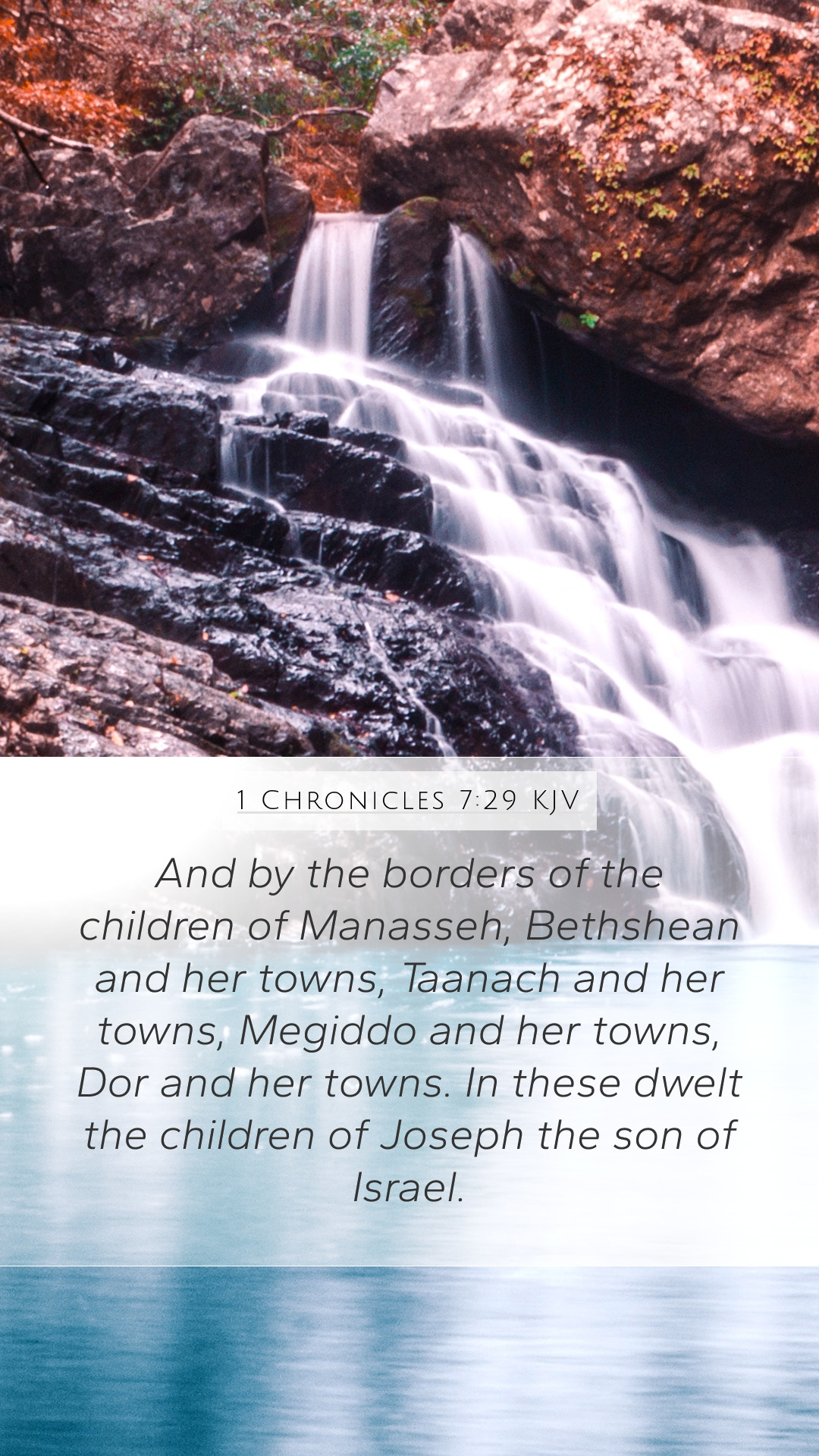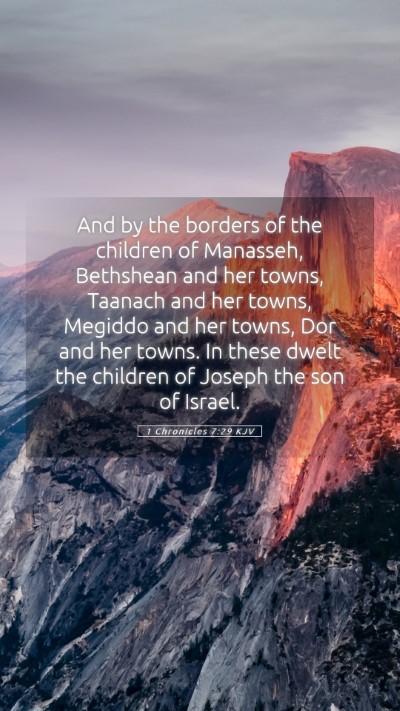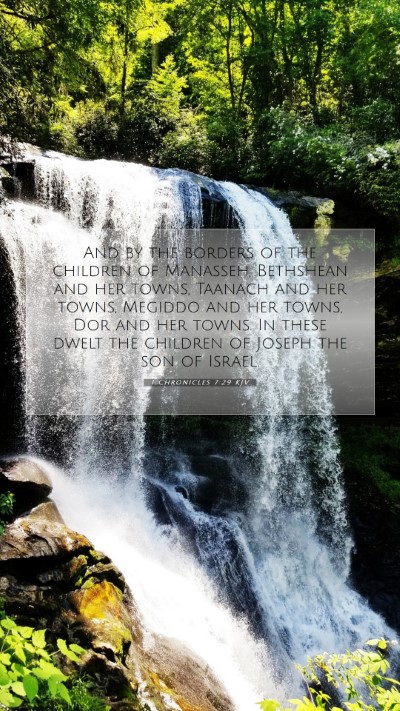Understanding 1 Chronicles 7:29
Bible Verse: 1 Chronicles 7:29 - "And the heads of the fathers of the house of Israel dwelt in the cities of Judah, and they were all the children of the king’s house of Judah."
Overview of 1 Chronicles 7:29
This verse falls within the genealogical records of the Israelite tribes, specifically focusing on the descendants of Judah. The chronicle serves to establish lineage and the significance of the tribes, particularly their leadership and dwelling places.
Significance in Context
1 Chronicles is often noted for its genealogical lines, emphasizing the importance of heritage and God's selection of Israel. This specific verse illustrates the unity of the tribes under the leadership of Judah, showcasing their foundational role in Israel's history.
Commentary Insights
The insights from various public domain commentaries deepen the understanding of this verse:
-
Matthew Henry's Commentary:
Henry explains that this verse highlights the significance of the tribes' organization during a precarious period in Israel's history. He suggests that the structure suggests God’s providence in protecting and guiding His people through chosen leaders.
-
Albert Barnes' Commentary:
Barnes emphasizes the importance of the heads of the families dwelling in Judah's cities, indicating a sense of stability. This stability was crucial for the continuity of worship and societal order among the Israelites.
-
Adam Clarke's Commentary:
Clarke discusses the background of the heads of households and their significant roles. His analysis suggests that the mention of the king's house implies a royal lineage, reinforcing the idea of divine right and leadership.
Key Themes and Ideas
This passage reflects several key themes:
- Leadership: The verse points to the structure of leadership within Israel, derived from the tribe of Judah, often associated with the Davidic line.
- Terrestrial and Divine Sovereignty: The mention of cities reflects the promises of God regarding the land, emphasizing His sovereignty over territorial divisions.
- Heritage and Community: By recounting genealogies, the scripture maintains the spiritual and civic identity of Israel, allowing the community to recognize its roots.
Application of 1 Chronicles 7:29
When applying this verse to daily life, several insights can be drawn:
- Understanding the importance of heritage and community in our lives.
- Recognizing God's hand in the leadership structures we have today.
- Emphasizing stability and unity within community groups, particularly in religious contexts.
Related Bible Cross References
- Genesis 49:8 - Discussing Jacob's blessing to Judah.
- 1 Kings 12:16 - The division of the kingdom and its implications.
- Matthew 1:3 - The genealogy of Jesus, demonstrating lineage from Judah.
Conclusion
1 Chronicles 7:29 serves as a powerful reminder of God's plans for the tribe of Judah and His leadership throughout His chosen people. The insights gleaned from public commentaries provide a rich understanding of the verse, relating historical context to contemporary application. For those involved in Bible study groups or using Bible study tools, such discussions can enhance Bible study lessons and provide deeper insights into Scripture.
Those seeking Bible verse meanings and explanations will find that this passage, when examined through commentary lenses, reveals layers of truth about authority, community, and divine purpose.


